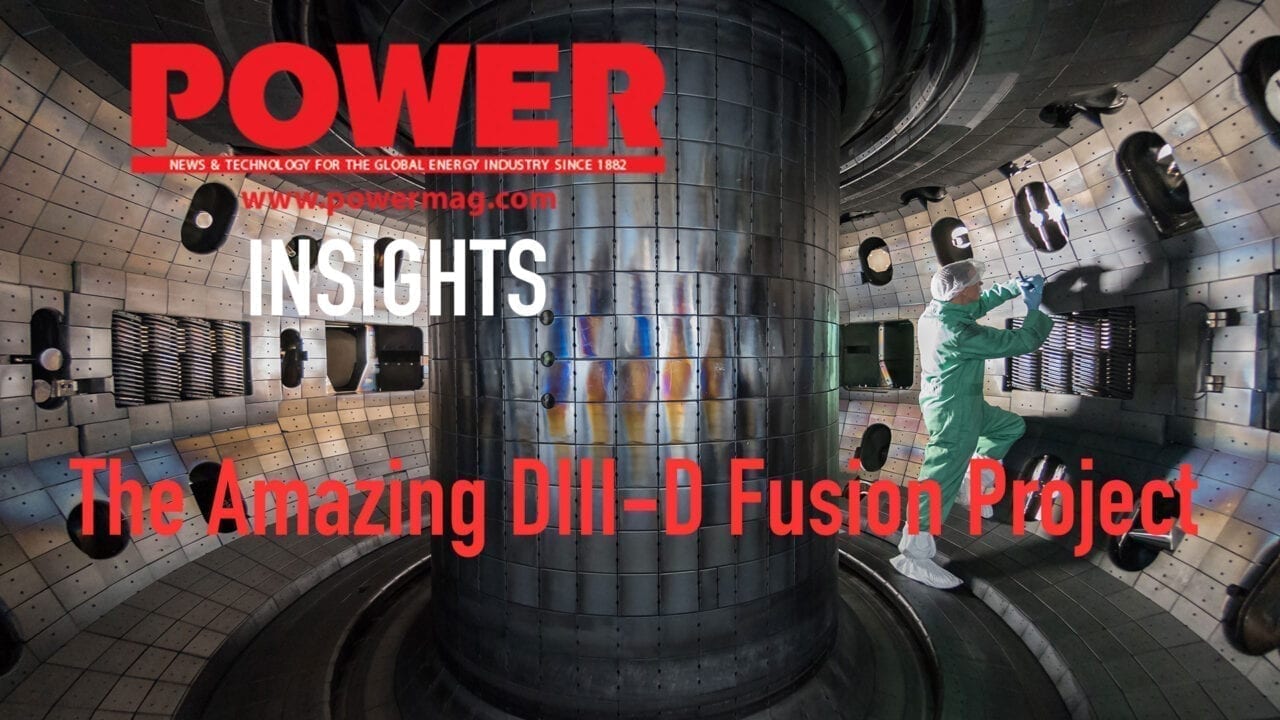[VIDEO] POWER Insights: The Amazing DIII-D Fusion Project
The post [VIDEO] POWER Insights: The Amazing DIII-D Fusion Project appeared first on POWER Magazine.

The DIII-D National Fusion Facility, operated by General Atomics for the U.S. Department of Energy (DOE), is the largest magnetic fusion research facility in the U.S. The mission of the DIII-D research program is to establish the scientific basis for the optimization of the tokamak approach to fusion energy production. The DIII-D program is a cornerstone element in the U.S.'s fusion program strategy. DIII-D research has delivered multiple innovations and scientific discoveries that have transformed the prospects for fusion energy.
Richard Buttery, director of experimental science for the DIII-D facility, was interviewed by POWER and explained how the DOE's National User Facility in San Diego, California, works. DIII-D is a tokamak, which means it's a device that holds very hot gas together," he said. The gas is shaped like a doughnut, and we use magnetic fields to hold that plasma together."
It's called plasma because it gets so hot (about 100 million degrees centigrade) it's ionized. Buttery said, When you get gases to very high temperatures, if you have the right ingredients, they will fuse-just like in the sun-and release energy."
Buttery said the DOE has embraced the mission of building a very compact pilot plant, and it wants to make it as quickly as possible. However, it's not simply a construction project. There's a lot of technology we need to understand," he said.
DIII-D is focused on the plasma science. For example, how to make the plasma super-hot, confine it, and keep it going. But there's a lot more technology involved, and other partners have been helping. It's a very collaborative program," Buttery said. National labs, such as Oak Ridge National Laboratory, and leading universities, such as Columbia and the Massachusetts Institute of Technology, have been involved. International colleagues help as well.
There are other labs around the world that do fusion that have different types of devices. We like to think our device occupies a particular niche in that it is extremely flexible, and it has a huge amount of measurement systems, so we can really try things out and see what's going on-figure out how to make it better and figure out how it works," said Buttery.
Watch the full interview in the embedded YouTube video below.
-Aaron Larson is POWER's executive editor (@AaronL_Power, @POWERmagazine).
The post [VIDEO] POWER Insights: The Amazing DIII-D Fusion Project appeared first on POWER Magazine.